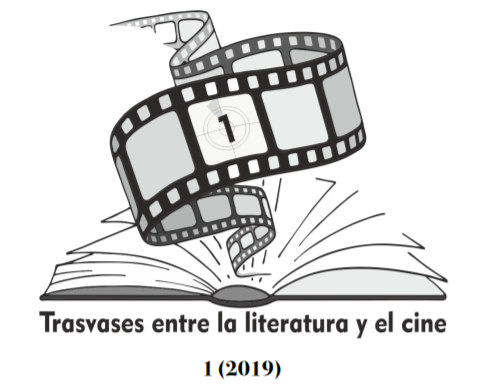Guillermo Arriaga. The Border Story
DOI:
https://doi.org/10.24310/Trasvasestlc.v0i1.6445Keywords:
film adaptation, remake, border story, variation, script, formatsAbstract
The figure of Guillermo Arriaga supposes an atypical case within the con- temporary narrative panorama. Novelist, filmmaker and writer of the librettos of films like Amores Perros, 21 Grams, Babel or The three burials of Melquiades Estrada, Arriaga offers an overview of what could be denominated the border story, as well as a reasoned reading of the limits of the adaptation. Through the analysis of his work both film and literary, as well as his own statements, we intend to bring some light on the phenomenon of adaptation, the remake and their peculiarities.
Downloads
Metrics
Publication Facts
Reviewer profiles N/A
Author statements
Indexed in
-
—
- Academic society
- N/A
- Publisher
- Universidad de Málaga
References
ARRIAGA, Guillermo (1991), Un dulce olor a muerte, México, Planeta
México.
ARRIAGA, Guillermo (1994), El búfalo de la noche, México, Planeta
México.
ARRIAGA, Guillermo (2000), Amores perros, Barcelona,
Verticales/Norma Editorial [2007].
ARRIAGA, Guillermo (2004), 21 gramos, Barcelon, Verticales/Norma
Editorial [2007].
ARRIAGA, Guillermo (2006), Retorno 201, Barcelona, Verticales/Norma Editorial.
ARRIAGA, Guillermo (2016), El salvaje, Barcelona, Alfaguara.
CARBAJOSA, Mónica (2014), «La dislocación temporal: análisis del
relato “Una rosa para Emily”, de William Faulkner, y del
largometraje 21 gramos de Alejandro González Iñárritu», en P. J.
Pardo y J. Sánchez Zapatero (eds.), Sobre la adaptación y más allá:
trasvases filmoliterarios, Universidad de Salamanca, págs. 247-254.
ENRIGUE, Álvaro (2007), «El nicho de Arriaga», Letras libres, 100,
págs. 48-50.
JENKINS, Henry (2006), Convergence Culture, Barcelona, Paidós.
LIPOVETSKY, Gilles y Jean Serroy (2009), La pantalla global,
Barcelona, Anagrama.
ORELLANA, Juan (2012), «Las mixtificaciones narrativas en el cine de
Alejandro González Iñárritu», Comunicación: Revista Internacional
de Comunicación Audiovisual, Publicidad y Estudios culturales, 10,
págs. 1158-1171.
PETRESCU, Olivia N. (2011), «La traducción de los culturemas
(Discusión al margen de la traducción de una novela de Guillermo Arriaga)», Valenciana, 8, págs. 139-172.
RÓDENAS, Gabri (2016), «Conexión Arriaga», Zenda [En línea:
http://www.zendalibros.com/conexion-arriaga/].
SORRENTO, Matt (2010), «Writing (and Filming) the memories: An
interview with Guillermo Arriaga on The Burning Plain», Bright
Light Film Journal [En línea: http://brightlightsfilm.com/writingand-
filming-the-memories-an-interview-with-guillermo-arriagaon-
the-burning-plain/#].
TOMAS MAIER, Alejandra (2011), «Camino a la redención: la tragedia
en el cine para la transmisión ficcionada», Ética y cine. Congreso
Online 2011 [En línea: http://www.eticaycine.org/Camino-a-laredencion].
Downloads
Published
How to Cite
Issue
Section
License
All authors published in this journal accept the following copyright terms:
a. Authors retain their authors´ rights (copyright) and grant First Publication Rights to the journal, which whill be published under a the Creative Commons Attribution-NonCommercial-ShareAlike 4.0 International (CC BY-NC-SA 4.0) license. All about this license is available in the following link: <http://creativecommons.org/licenses/by-nc-sa/4.0>
b. Authors may separately establish additional agreements for the non-exclusive distribution of the version of the work published in the journal (e.g. including it in an institutional repository, or publishing it in a book) with an acknowledgement of its initial publication in this journal.
c. Authors are allowed and encouraged to disseminate their work electronically (e.g. in institutional repositories or on their own website) as this can lead to productive exchanges, as well as earlier and more extensive citation of published work.
The author is responsible for obtaining permission from the copyright holder when using copyrighted materials.
This electronic journal is published by University of Málaga (UmaEditorial), thus it is necessary to cite the origin of any partial or total reproduction.








22.png)










